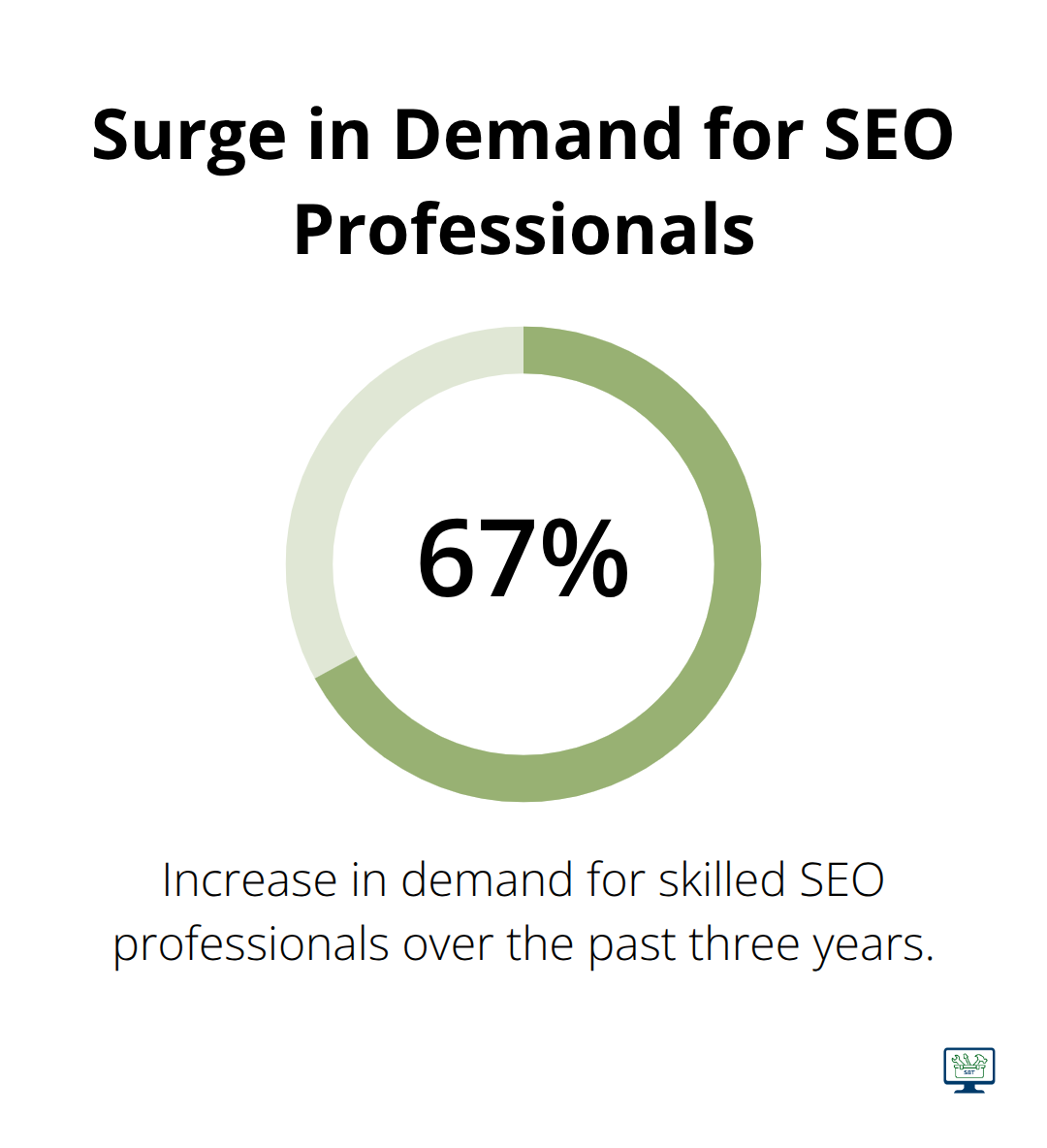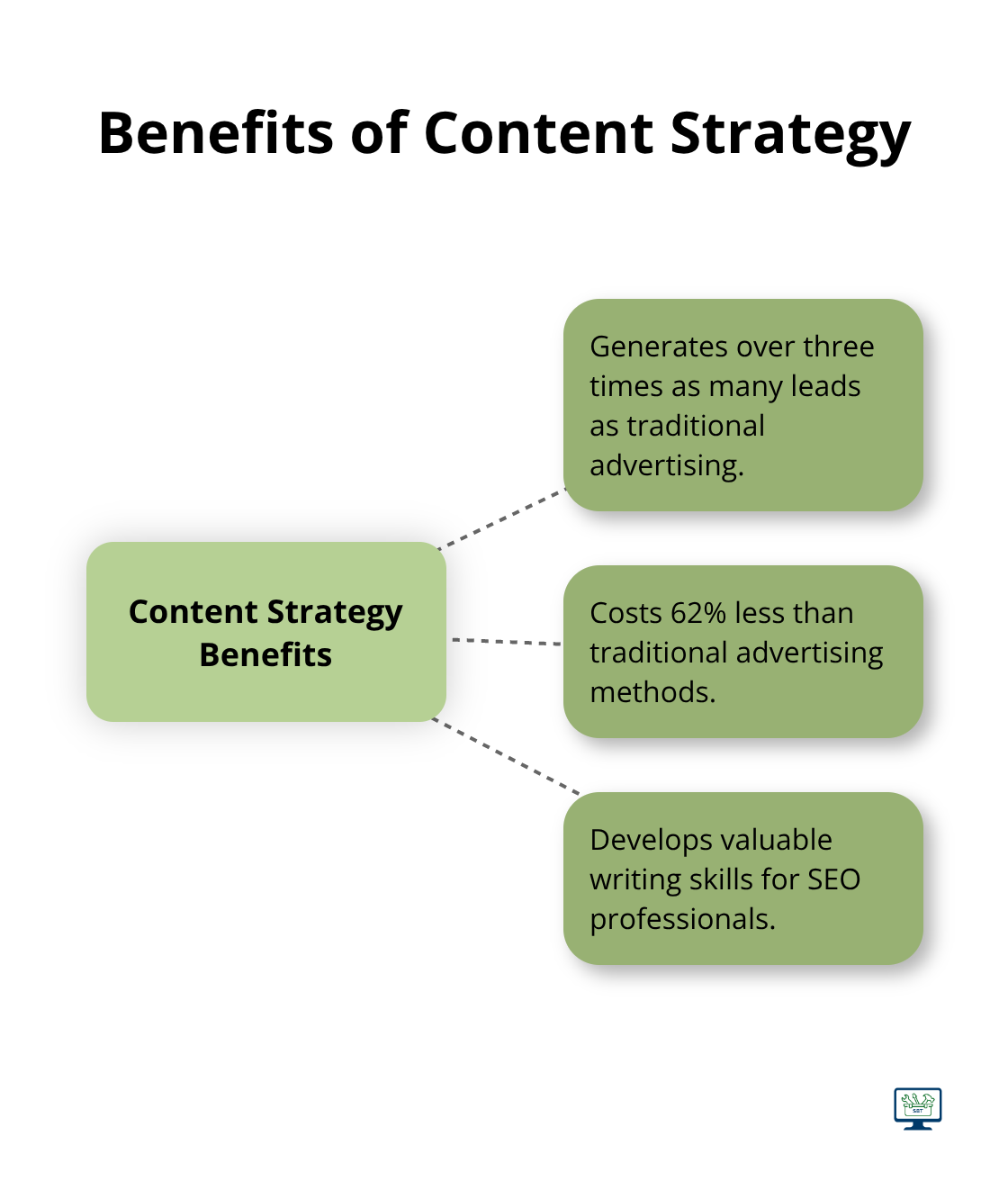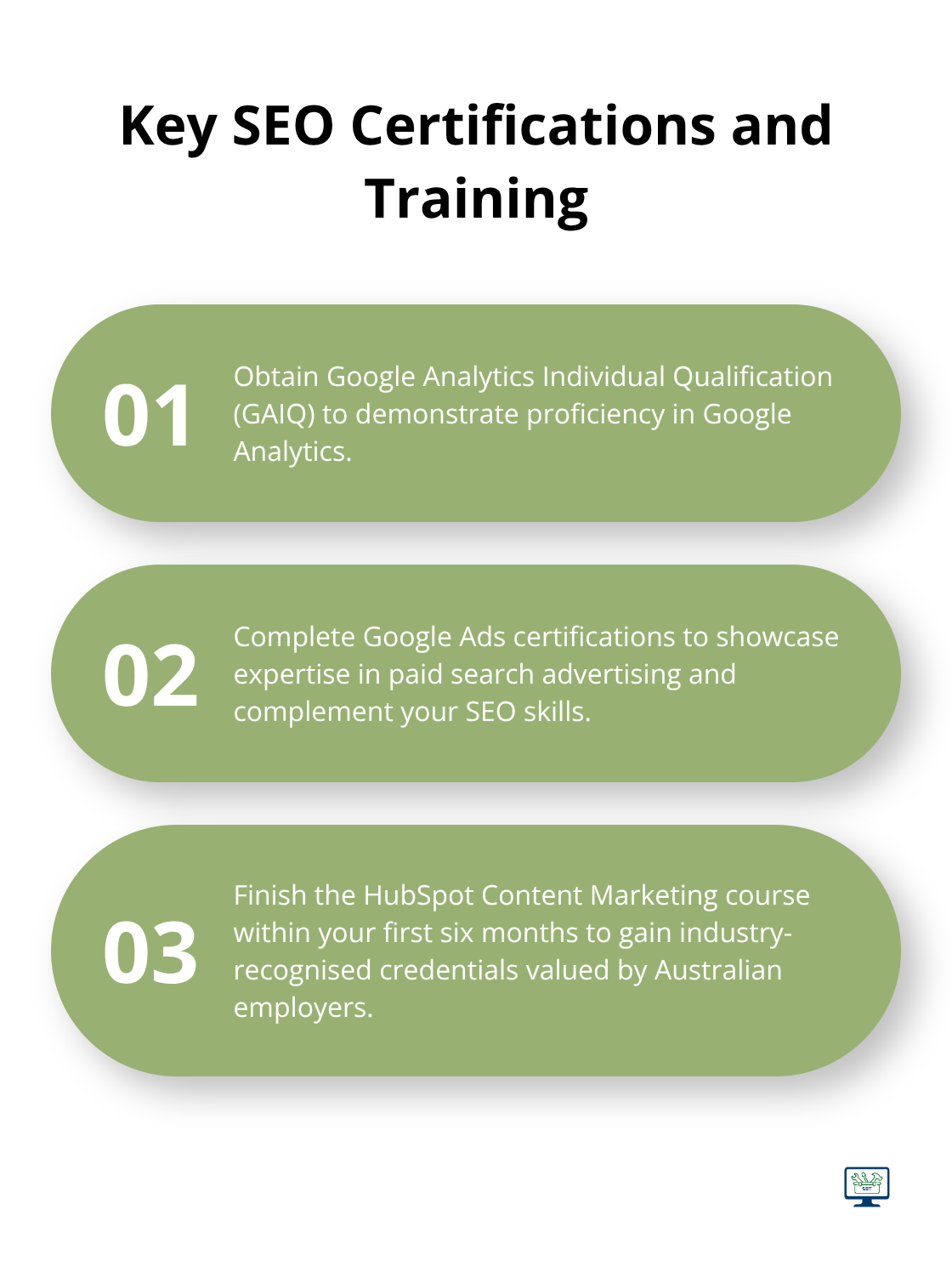How to Become an SEO Professional

Published On Sep 25,2025
The demand for skilled SEO professionals has surged 67% over the past three years, making it one of the fastest-growing digital marketing careers. Australian businesses are investing heavily in search visibility, creating abundant opportunities for newcomers.

We at WebsiteStrategies have guided hundreds of professionals through their SEO journey. This comprehensive roadmap will transform you from beginner to competent SEO professional.
What SEO Fundamentals Must You Master First
Search engines process over 8.5 billion searches daily according to Google, which makes understanding their mechanics your foundation for SEO success. Google’s algorithm evaluates over 200 ranking factors, but three dominate: content relevance, technical performance, and authority signals. Start with Google Search Console and Google Analytics – these free tools provide direct insights into how Google sees your site.
Build Your Technical SEO Foundation
Technical SEO forms your bedrock: site speed under 3 seconds, mobile responsiveness, and proper URL structure. Core Web Vitals measure real-world user experience for loading performance, interactivity, and visual stability of the page. Focus on these core elements first, as they directly impact how search engines crawl and index your content.
Master Strategic Keyword Research
Effective keyword research drives 70% of successful SEO campaigns according to Ahrefs data. Focus on long-tail keywords with 3-4 words – they convert 2.5 times better than single keywords and face less competition. Use SEMrush or Ahrefs to identify keywords with search volumes between 100-1,000 monthly searches and keyword difficulty scores under 30 for faster wins.
Australian businesses should prioritise local modifiers like “Brisbane,” “Sydney,” or “Melbourne” since local searches represent more than 1.6 billion of Google’s 3.5 billion daily searches. Target buyer-intent keywords that contain “buy,” “best,” or “review” – these generate 3 times more qualified leads than informational searches.
Implement On-Page Optimisation Systems
Title tags remain the strongest on-page ranking factor, with optimal lengths between 50-60 characters to avoid truncation in search results. Meta descriptions should stay under 155 characters while you include your primary keyword naturally. Header tags create content hierarchy – use H1 for main topics, H2 for sections, and H3 for subsections.
Internal links boost page authority by 25% when you implement them strategically (link to relevant pages with descriptive anchor text rather than generic phrases). Image optimisation reduces page load times significantly: compress files under 100KB and use descriptive alt text that contains relevant keywords for better accessibility and rankings.
These fundamentals create the foundation, but technical knowledge alone won’t build your SEO career. You need to develop practical skills that demonstrate your expertise to potential employers and clients.
How Do You Build Market-Ready SEO Skills
Content strategy drives over three times as many leads as traditional advertising and costs 62% less, which makes writing skills your most valuable asset. Start creating weekly blog posts that target specific keywords your audience searches for – this builds writing fluency while it generates portfolio pieces. Focus on problem-solving content that answers real customer questions rather than generic industry topics.

Australian businesses need writers who understand local search behaviour: incorporate regional terms, local events, and Australian spelling consistently. Practice writing meta titles and descriptions daily until you can craft compelling copy within character limits instinctively.
Analytics Mastery Separates Professionals from Amateurs
Google Analytics 4 provides comprehensive data processing capabilities, yet most marketers only use 20% of its capabilities. Master event tracking, conversion goals, and attribution models to demonstrate ROI impact. Set up custom dashboards that show organic traffic growth, keyword ranking improvements, and revenue attribution from SEO efforts.
Learn to interpret search console data: clicks, impressions, and click-through rates reveal content performance patterns. Screaming Frog and Ahrefs provide technical audit data – practice identifying crawl errors, broken links, and duplicate content issues. Australian SEO professionals who present data-driven recommendations earn 40% higher salaries than those who rely on gut instinct (according to SEEK data).
Link Building Requires Relationship Strategy
High-quality backlinks from Australian domains boost local rankings significantly more than international links. Identify industry publications, local business directories, and relevant blogs that accept guest contributions. Pitch story angles that provide genuine value rather than promotional content – journalists receive 200+ pitches weekly and ignore obvious self-promotion.
Resource page link building works: find pages that list industry tools or guides, then suggest your content as valuable addition. Broken link building generates 3x higher response rates than cold outreach – find broken links on relevant sites and offer your content as replacement.
These skills form your professional foundation, but employers want proof you can apply them effectively. Your next step involves creating tangible evidence of your SEO expertise through real-world projects and recognised credentials.
How Do You Launch Your SEO Career Successfully
Your portfolio needs three real projects that demonstrate measurable results – employers dismiss generic examples without concrete data. Start with your own website or blog that targets specific keywords in your niche, then document traffic growth over 3-6 months with Google Analytics screenshots. Approach local businesses and offer free SEO audits in exchange for case study rights – many Australian small businesses need proper SEO support, which creates abundant opportunities.
Create Compelling Project Documentation
Document every project with before-and-after metrics: organic traffic increases, keyword ranking improvements, and conversion rate changes. Include screenshots of Google Search Console data that show impression and click growth over time. Present your findings in clear reports that highlight specific improvements and their business impact.
Track keyword positions weekly and record the changes in spreadsheets or ranking tools. Screenshot your Google Analytics dashboard before you start each project and compare it with results after 90 days. This documentation proves your ability to deliver measurable outcomes that employers value.
Obtain Industry Certifications and Training
Industry certifications significantly boost your earning potential, which makes Google Analytics Individual Qualification and Google Ads certifications your minimum requirements. Complete HubSpot Content Marketing and Moz SEO Essentials courses within your first six months – both provide industry-recognised credentials that Australian employers value.

Google offers free certifications through Skillshop that cover Analytics, Search Console, and Google Ads fundamentals. These certifications take 10-15 hours each but significantly boost your credibility with potential employers. Update your LinkedIn profile immediately after you complete each certification to maximise visibility.
Build Professional Network Connections
Join Brighton SEO Facebook groups and attend Search Engine Land virtual conferences to connect with established professionals. Digital marketing professionals in Australia earn competitive salaries, but networking increases salary potential by 15-20% through referral opportunities.
LinkedIn publishing generates 3x more engagement than standard posts – share weekly SEO insights and comment meaningfully on industry leader content. Follow SEO experts like Barry Schwartz, Rand Fishkin, and local Australian specialists who share current algorithm updates and practical strategies that keep your knowledge current.
Apply for Entry-Level Positions Strategically
Target digital marketing agencies, e-commerce companies, and SaaS businesses that prioritise organic growth. Entry-level SEO roles often require 1-2 years of experience, but strong portfolios can overcome this requirement. Tailor your applications to highlight specific skills that match job descriptions rather than generic SEO knowledge.
Freelance platforms like Upwork and Freelancer offer project-based work that builds experience while you search for permanent positions. Start with small projects (website audits, keyword research) and gradually take on larger campaigns as your reputation grows.
Final Thoughts
SEO professionals develop systematic skills across technical foundations, content strategy, and data analysis. Start with Google’s free tools and certifications, then build three documented case studies that demonstrate measurable traffic growth and ranking improvements. Your portfolio should showcase real projects with concrete metrics rather than theoretical knowledge.
The SEO landscape evolves rapidly with algorithm updates and new ranking factors that emerge quarterly. Subscribe to Search Engine Land and Moz newsletters to stay current with industry changes. Attend virtual conferences and join professional communities where experienced practitioners share practical insights and trends.
Career advancement opportunities span multiple directions: specialise in technical SEO for enterprise clients, focus on local SEO for small businesses, or develop content strategy expertise. Senior SEO professional roles in Australia command salaries that exceed $110,000 annually (with management positions reaching significantly higher compensation levels). We at WebsiteStrategies provide comprehensive SEO training and consultancy services with hands-on experience through real client projects under expert guidance.
